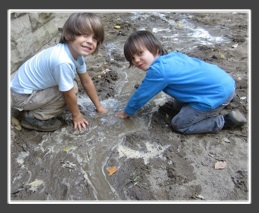Hello, Friends.
As Montessori educators or staff working within a Montessori culture, we understand the importance of exploration. As teachers, we have been trained to set up our environments in a way that encourages discovery through exploration. Our role is to prepare, prepare, prepare, and “then follow the child.” In Catherine McTamaney’s book, A Delicate Task: Teaching and Learning on a Montessori Pathway, she shares that a teacher’s role is not, “to direct the exploration, but rather to carry the equipment and check the supplies. Our work is to scout, to observe, to inform, but ultimately to follow the child. “
I am reminded when reading McTamaney’s short essays on exploration (pp. 35-47) that borders and tension points are an important area to pay attention to. In order to explore, we need a safe and familiar place to begin. As educators, parents, and students, we work hard to create emotional and physical familiarity so that we have the courage to step into the unknown. We set up routines, we build trust, we love unconditionally. We develop the academic and emotional skills necessary for a strong foundation. Then, we must step forward into new knowledge. This step can create tension, emotional turmoil, and anxiety.
When we feel these emotions, or witness them within our students, we can be certain we are standing on a border with an opportunity to learn something new calling to us. In fact, the Latin root for “explore” is “to cry out.” McTamaney says, “when we allow ourselves to explore our intentions, to work back from what irks us or understand why we are attracted to particular things, we are more mindful in our actions. When we take the time to ask challenging questions about ourselves, we turn off the auto-pilot in our lives and turn on real living.”
It is at these tension points, these borders between ourselves and our students, or colleagues, or parents, or even between ourselves and ourselves, where we should pause, be brave, and step forward in a new way into a new land. Maybe in this land we can experience the world with deeper gratitude, modesty, and wonder. When we do this, McTamaney suggests that, “we can engage with each other, with our communities, with our children, and with ourselves, with understanding, with knowledge, and with intent. In order to change our world, first we have to understand it. To understand the world, first we have to understand ourselves.”
Best,
Jeff


